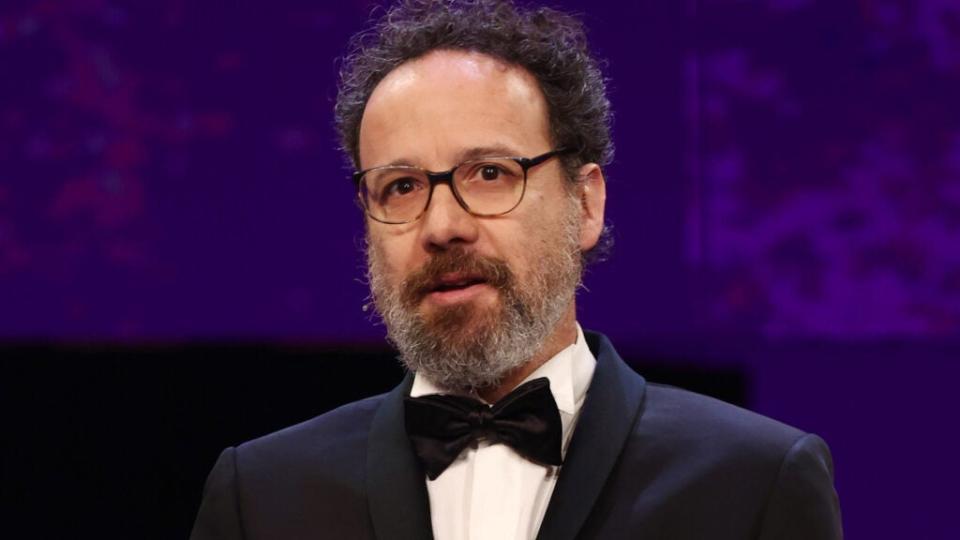Tension at the Berlinale: Artistic Director’s Exit Reflects Trouble at Major Festivals
As the Toronto International Film Festival opens, an uproar over the exit of the artistic director of The Berlinale, Berlin’s prestigious annual film festival, is laying bare the problems facing many international film festivals over finances, programming and the competing demands of government officials and artists.
On Wednesday, over 200 directors — including acclaimed filmmakers like Martin Scorsese, Paul Schrader and Joanna Hogg — put their name to a petition asking for the reinstatement of the Berlinale’s artistic director, Carlo Chatrian, after the board that oversees the festival decided to change its leadership structure. Chatrian decided to walk away rather than take part in that transition in a diminished role.
The Berlinale leadership controversy is just part of the recent challenges during a very difficult time for film festivals. Nearly every festival, domestic and international, has struggled to pull in audiences in the wake of COVID and a shaky global economy that has seen massive media contraction.

In the last month, another big international film festival was struck a blow. The Toronto International Film Festival lost its sponsor, Bell Canada, after a 28-year relationship, at the end of August.
“I do think festivals are in trouble and perhaps the bigger ones are only really facing the full weight of their trouble now,” Kathleen McInnis, a former festival programmer and film strategist, told TheWrap.
The smaller festivals, she added, may have had the advantage of facing their issues earlier, though they remain challenged.
The largest issues international festivals are grappling with are funding and governance — and, as a consequence of their heavy government support, the intrusion of government oversight into artistic endeavors.
For love (of film) or money?
“The problem with Berlin runs deeper” than Chatrian, said film programmer and critic Joseph Fahim. Berlin and other international film festivals work on a different model than most U.S. events. Governments have a heavy stake in a festival’s success and content. The German Ministry of State for Culture and Media gives a reported $12 million a year to the Berlinale.
Chatrian’s removal in particular points to how the government backers of these festivals are increasingly pushing the events to market themselves as the place where Oscar movies are found, which leads to meddling by government officials. With international filmmaking making huge strides, not only on the global film stage but at American award ceremonies, the desire to create a new national cinema is pressuring what were once locale-specific festivals.
“Carlo Chatrian is a very good artistic director, but he’s a very artsy one,” said Fabien LeMercier, film critic for Cineuropa. “So that is good for film lovers, but for the big stars coming, it’s not so great.”

Even with strong government support, the Berlinale eliminated sections devoted to television and up-and-coming German directors in the face of belt-tightening by the Ministry of Culture.
“Venues and spaces are showing increasing apathy towards the Berlin Film Festival and at the same time they aren’t getting the support from either the Ministry of Culture, or from the Ministry of Finance that finances the Ministry of Culture,” said Fahim.
A new nationalism in cinema
Chatrian, an Italian national, is said to have butted heads with the Ministry of Culture, according to multiple individuals who spoke to TheWrap.
“Carlo’s taste was too effete for the government folks who run it,” a studio awards executive speaking on condition of anonymity told TheWrap. “They want[ed] him to report to someone in government. They wanted bigger, broader. He wasn’t beloved. [He was] too artistic. He cares too much about filmmakers.”
Others noted that Chatrian is not German, and that too became a point of tension with the government.
Chatrian could not be reached and a representative for Berlinale declined to comment.
The desire to bring in a German national to the role to help create a new national cinema could be part of the logic behind the changes at the Berlinale.
“I don’t believe that you definitely have to be from the country to be able to program great films, but I do believe that you have to be in touch with these local festivals that are directed to a niche country to understand what truly is going on,” said Talize Sayegh, creator of the Hollywood Brazilian Film Festival.
“The festival world is divided in two,” McInnis said. There’s the “show,” or the artistic side of things, she explained, and “the business,” the organizational infrastructure that makes it all possible.
Chatrian is now at the center of a dispute between how festivals navigate art and entertainment, a battle that’s been raging for decades.
“Berlin has a big problem because all the best films want to go to Cannes,” said LeMercier. “Berlin, 10 years ago, was pushing very high. It was a very big festival with a big market.”
But with Cannes’ prestige and Venice happening in a prime September timeframe, Berlin soon lost its slot as a space where Oscar movies could get their first shot at prestige and coverage.
As LeMercier said, that’s not Chatrian’s problem, but it was something he was left to figure out when he took the position. Dieter Kosslick, Chatrian’s predecessor, was often criticized, according to LeMercier, for prioritizing features with A-list talent over everything else.
“It’s almost like the entire festival sphere is being anchored towards being a launchpad servicing the whole season,” said Fahim, and that’s becoming a problem with festivals all fighting for the same content. This is in spite of international cinema audiences only increasing. According to the International Trade Administration, though movie theaters are on the decline, 81% of German households have a subscription service. However, only 27% of German cinemagoers saw a movie in their native tongue.
“You see a lot of kids growing up wanting to see more and I feel Berlin is definitely underserved by the current structure of the film scene,” said Fahim.
Similar to the Toronto International Film Festival, the Berlinale is a public festival that caters to those who aren’t associated with the media industry. And if the public doesn’t want to buy tickets to see the movies, that can be a problem.
“It’s a local festival, even if it’s international,” said LeMercier. “So maybe there are struggles inside the German industry because Kosslick was pushed out because of struggles in the German [film] industry, so maybe Chatrian was a victim of that, also.”

Amid those tensions, the Berlinale faces an uncertain future. It’s unknown who will replace Chatrian, though the belief is that the festival board will seek someone more aligned with the views of the German Ministry of Culture. Will that mean bureaucrats will also have more say in the festival’s programming?
Those who signed the letter said the festival should prioritize someone who knows films, not the specific country.
“Considering the Berlinale’s international stature, it is neither unreasonable nor inappropriate to entrust artistic direction to a qualified professional, even if he is not German,” said “Yara” director Abbas Fahdel, one of the signatories. “In fact, I believe that the choice of a non-German programmer reinforces the festival’s international character.”
The question of government-sponsored film festival content isn’t limited to the Berlinale. The head of La Biennale, the parent organization to the Venice Film Festival, is named by the Italian Minister of Culture. Current head Roberto Cicutto’s term is up in March 2024. He will probably not be reappointed by the right-wing Meloni government, which has already floated possible replacements who are far more politically aligned.
Additional reporting by Ben Croll, Jason Clark, Sharon Waxman and Steve Pond.
The post Tension at the Berlinale: Artistic Director’s Exit Reflects Trouble at Major Festivals appeared first on TheWrap.

